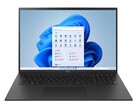It's been almost two years since Tesla announced a revolutionary cylindrical battery that was to go into its performance electric vehicles as it could store several times the energy of Panasonic's 2170 cells used in the Model 3 and Model Y at half the cost. The so-called 4680 battery, referring to its dimensions, is again a Panasonic creation and Tesla started a pilot production line for the cells in its Fremont factory in California. Fast forward to February this year, and Tesla announced it has produced its millionth 4680 cells there.
While the number may sound impressive, it is only enough to produce about 1200 Model Y packs and neither Tesla, nor Panasonic or anyone else has begun true 4680 battery mass production. Panasonic's CEO announced it will be giving "top priority" to Tesla's 4680 line once it goes beyond the pilot stage which may not happen before the end of the year. While initially mulling a US factory for the cells, Panasonic is now balking at the costs involved, reports Korean media, and is preparing to spin its 4680 battery business by building an independent production plant in Wakayama Prefecture at a cost of 80 billion yen (about US$628 million).
Despite Tesla's pressure, Panasonic's 4680 battery plant in Wakayama is not going to be operational before some time in 2023, though, and in the meantime more than a few competitors to make the energy-dense cylindrical battery have emerged. LG's battery subsidiary, for instance, said it has developed a 4680 battery cell of its own and will be ready to start its mass production for Tesla before Panasonic:
Equipment and materials for pilot mass production have been prepared. In LG Energy Solution, we also set the goal of supplying new batteries to Tesla, beating Panasonic.
It remains to be seen if that will indeed be the case, but while Panasonic's 4680 battery production is being ironed out, the world's biggest EV battery maker CATL announced an even better one which it calls Kirin and which provides 13% higher energy density than the 4680 battery at the same footprint and production method. CATL also provides the LFP batteries in Tesla's standard range vehicles, so once it starts mass production of the 4680-beating cells, Tesla may wiggle its way as a Kirin customer for its performance and long-range electric cars as well.














































